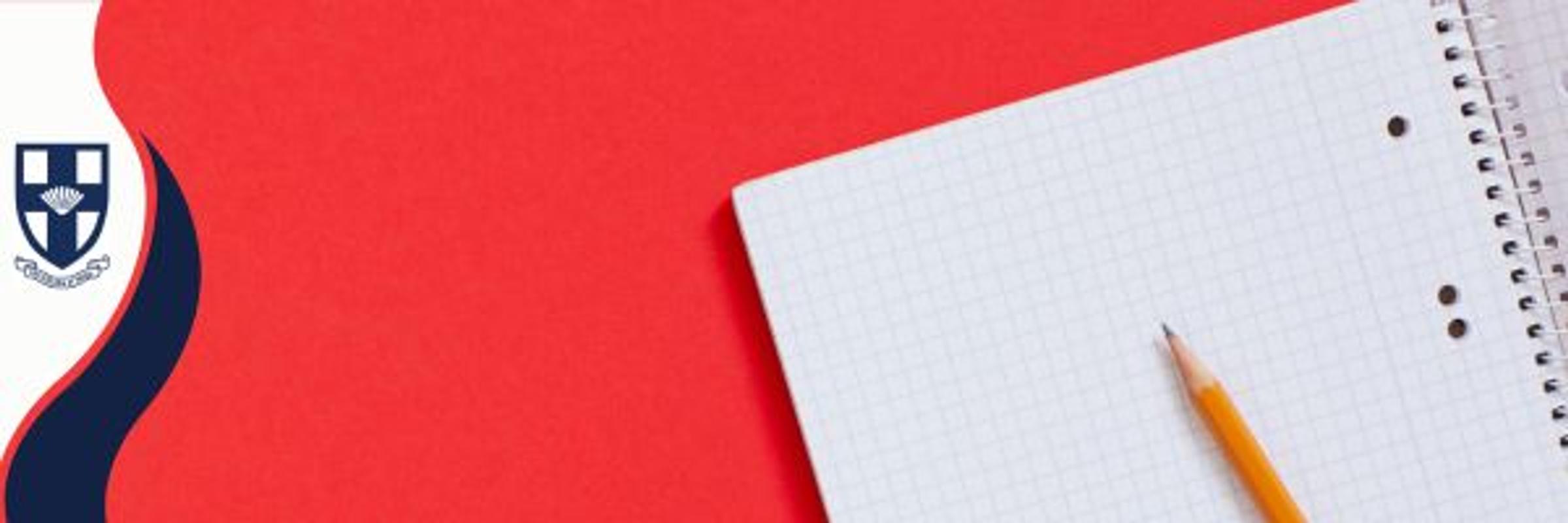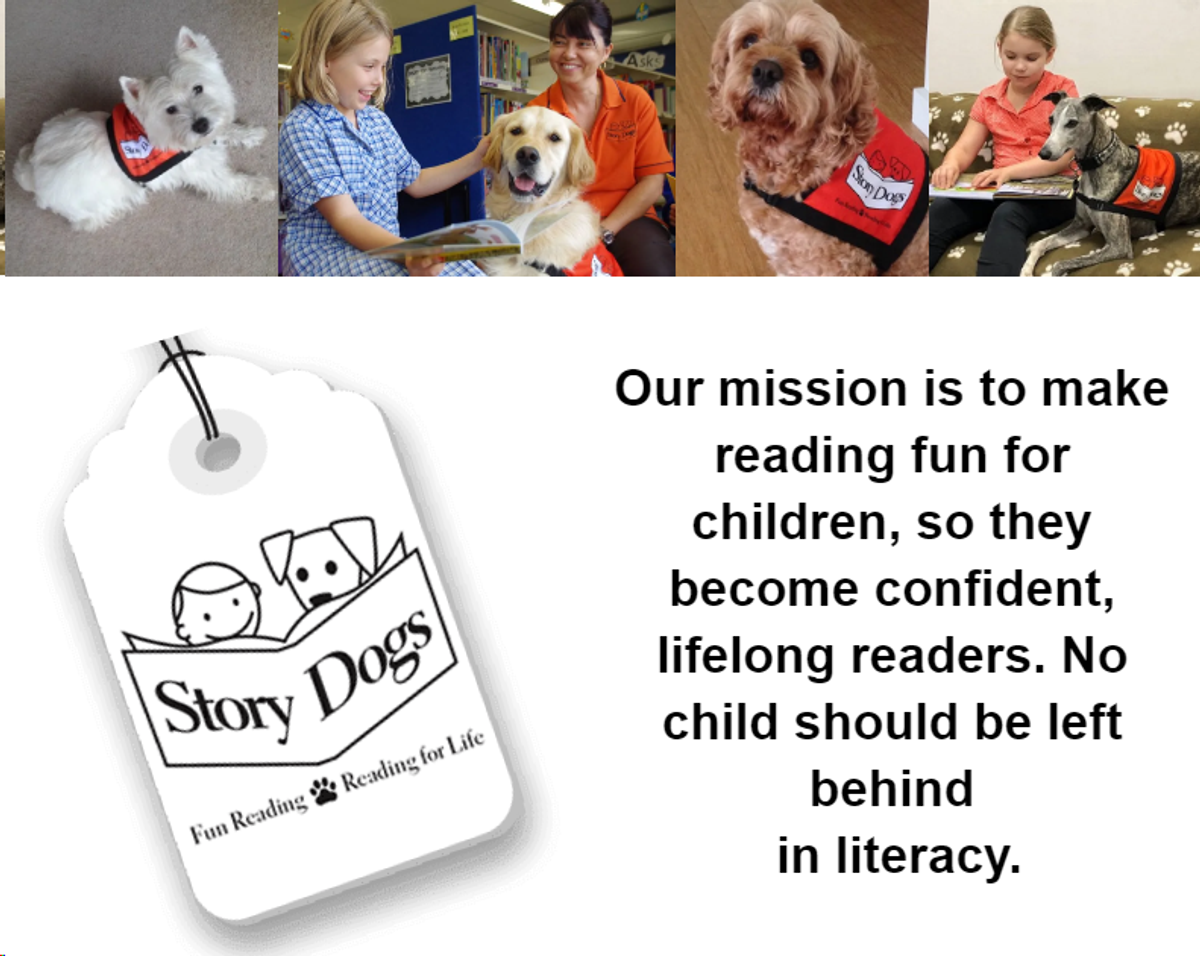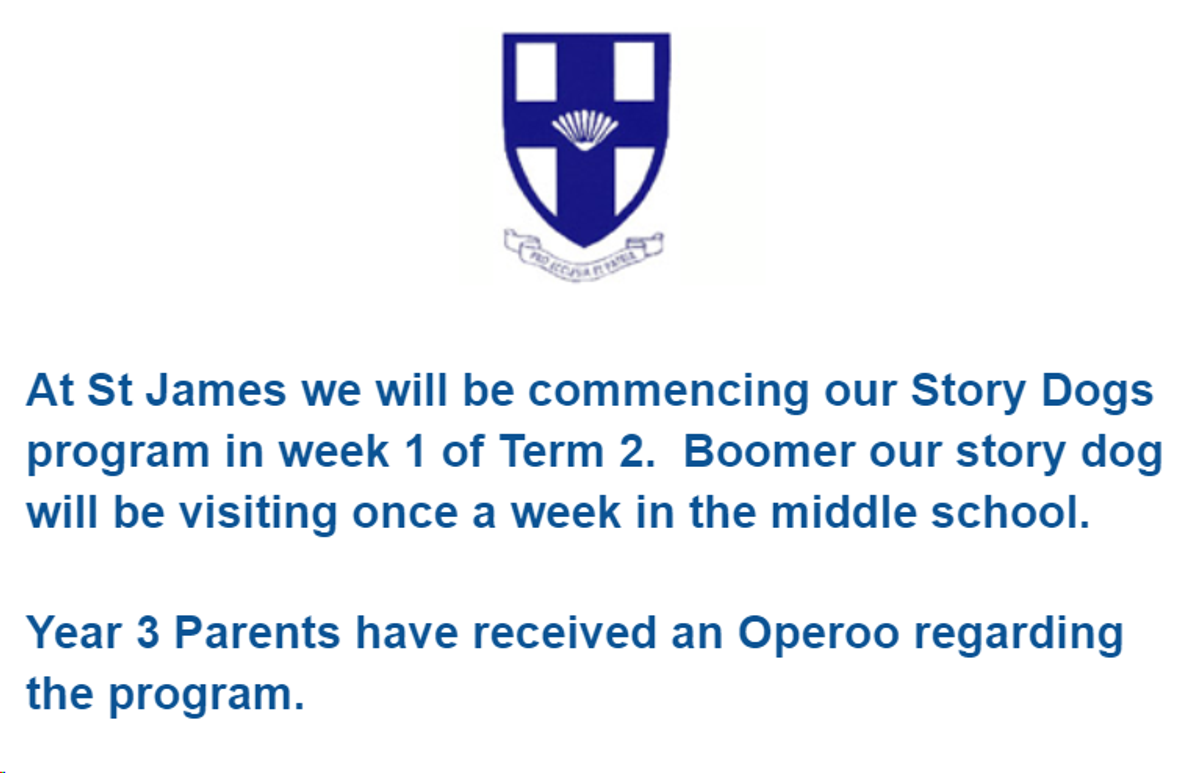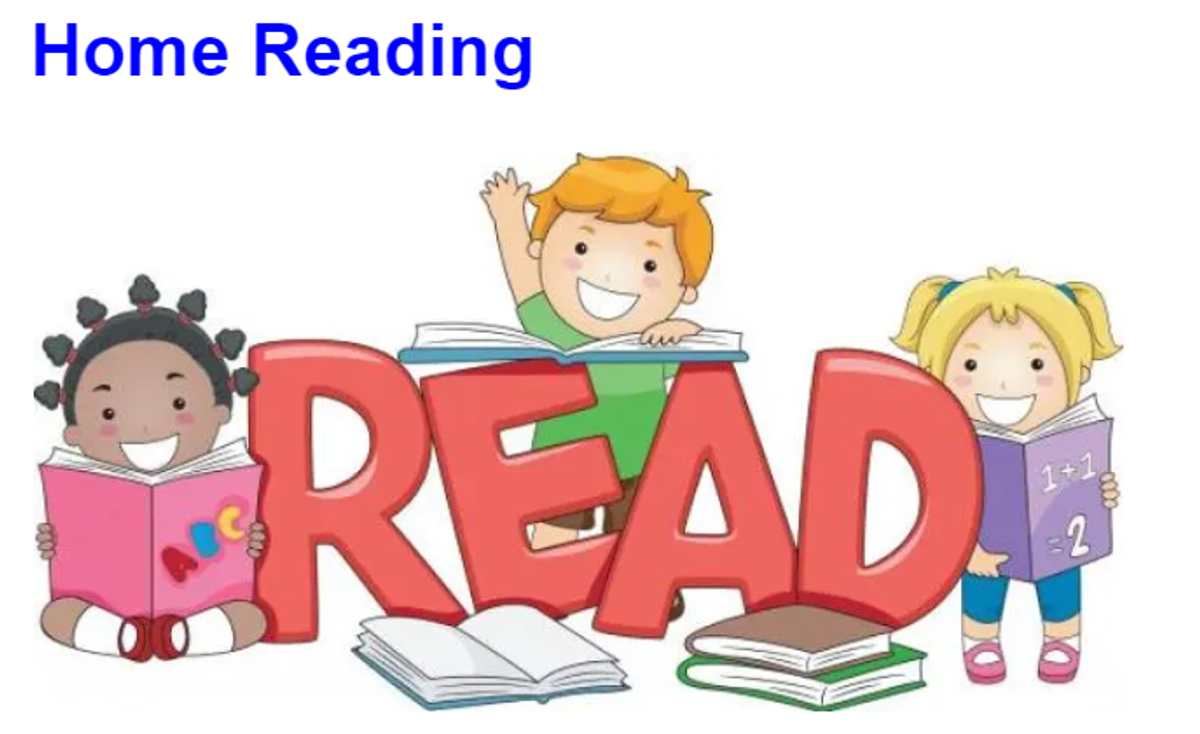St James Learning and Teaching
Curriculum / Classroom News

St James Learning and Teaching
Curriculum / Classroom News


Story Dogs is a reading support program where selected children read to an accredited dog and its handler. Reading takes place in a quiet area of the school such as the library or verandah outside the classroom. Sessions run for 20 minutes, where each child is one-on-one with the Dog Team
The books used in the program are suitable for each child’s reading level, are engaging and inspire children to read for enjoyment and knowledge.
When children read to a dog the outcomes are amazing:
They have FUN
They are not judged
Their focus improves
Their reading skills increase
Their confidence soars
The dog’s temperament, obedience and willingness is of utmost importance. The safety of the children is paramount. Dog Teams must pass an accreditation by a certified dog trainer as well as being immaculately groomed, vaccinated and vet checked.




Reading has always been imperative in a child’s development, but now more than ever, with the heavy presence of devices it’s more important than ever. Evidence shows that reading with your child each night helps to reinforce and consolidate the explicit instruction provided to your child in the Literacy sessions each day. You can help support your child’s reading by creating a rich literacy environment at home, by reading with your child and sharing your love of books.
Children develop literacy through shared reading experiences, as well as reading instruction. Both of these things are important for children to become fluent readers.


Why do we need to do reading at home?
Children need a lot of practice to develop their reading skills to the point of fluency. Ten to fifteen minutes of daily reading at home with a supportive adult can make all the difference. This will enable children to apply their letter-sound knowledge to reading simple text. Reading at home should be a successful and positive experience for your child. If it is turning into a very stressful time, please consult your child’s class teacher for advice. What kind of readers will my child bring home and why? The readers that your child will bring home will contain words that they can ‘sound out’. This will enable children to use their knowledge of letter-sound relationships that they have been taught in class. You will notice that the vocabulary in these books is very controlled. This is because at this early stage of the reading process, words need to follow regular sound- symbol patterns (e.g., dog, fan, sheep) so that children are given opportunities to work out the words for themselves, with your support. As children learn more about spelling and the ways different sounds are represented, they will be able to read more words. Over the year, and with practice, your child will begin to read with more fluency. Guessing words from a picture or from context should not be encouraged. Instead, encourage your child to look at the letter and letter combinations and think about the sounds they represent. Some words are irregular or ‘tricky’. These ‘exception’ words cannot be sounded out in the usual way and should be previewed or simply provided.
How should I support my child when reading at home?
When your child gets stuck on a word, encourage him/her to have a go at sounding out the word. If necessary,
demonstrate what this looks like first. Remember to praise with abundance when your child is successful at working out a word or when your child goes back to have another go. Never tell your child to ‘guess’ a word or use the picture to help them. Always keep the focus on letters and sounds. Learning to read initially requires a lot of effort for many children and at this early stage, much patience is required. It is important to build up
confidence and allow them to enjoy success as they work out words with your help.
If your child stumbles over a tricky word that can’t be sounded out, simply give him/her the word and ask him/her to repeat it. Tricky words can be practised at home, using the list at the back of the InitiaLit–1 Home Reading Diary. Only practise the lists that have already been taught in the lessons.
Check that your child has understood what has been read. Once your child is reading more confidently, encourage him/her to think about comprehension and to self-correct if something does not make sense.
How often should my child read with me in a week and for how long?
The class teacher will decide how many books will be brought home each week. Books can be read several times to build confidence and fluency. Your child should spend at least ten minutes reading with you, about four times a week.
When is the best time to do home reading?
Provide a quiet place at home with no distractions so both you and your child can focus on the task at hand. It is a good idea to provide a rest or snack immediately after school, prior to commencing home reading so that your child is well rested and fresh. Try not to rush the session or leave it too late in the day. Creating a positive reading experience is vital.
What else can I do to support my child at home?
There will be many, many informal opportunities to develop your child’s language at home. This work can be done, and is just as beneficial, in English or in your home language. Talk to your child, using interesting vocabulary. Explain new words. Join a local library or discuss books your child borrows in the St James Library and borrow books to read to your child daily. Talk about the stories you read to your child, providing a good model. Restrict screen time and replace it with opportunities todevelop oral language. Help develop your child’s curiosity about language and the sounds within words by playing word and sound games, e.g., I Spy or reciting nursery rhymes. Revise the sounds for the letters that they are learning and help them work out words using their sounds. As the year progresses, practise the tricky words that they have learned. The most important thing is to keep it light and playful but purposeful.




Mrs Mandi Joplin
Literacy Leader
Dear Families of St James,
Are you passionate about music and looking for a way to showcase your talent? Look no further! We're excited to announce the launch of our very own ukulele band here at St James!
Proposing to start on this first week of Term 2, Wednesday during lunchtime, we'll be bringing the sweet sounds of the ukulele to our school community. This initiative is open to students from Grade 3-6 who own a ukulele and are eager to share their musical passion with others.
Please note that due to limited school resources, we currently have only one ukulele available on campus. Therefore, we kindly ask participating students to bring their own ukulele from home.
Join us for a fun-filled musical journey as we strum away our midweek blues and create beautiful melodies together. Whether you're a seasoned player or just starting out, this is your chance to be part of something special!
Don't miss out on this exciting opportunity to make music and forge new friendships along the way. We can't wait to see you there!
Miss Michaela Pace
Performing Arts Teacher


Athletics Carnival-26th March
On Tuesday the 26th March all students at St James will take part in the St James Athletics Carnival at the Sandringham Athletics Track. An Operoo was sent out with all the information including a timetable for the day and what students will need to bring.
Students in Prep-2 will be leaving St James at 10.50am and will begin their activities at 11.30am. They will return to St James at 1.15pm.
Students in Years 3-6 will need to be at school at the usual time and will leave St James just after 9am. Please do not be late on this day. Students will return to St James at the conclusion of the carnival at approximately 3pm. Thank-you to all of the wonderful parents who have already signed up to volunteer. Please ensure your WWCC(Working with Children Check) is up to date. You should have already received your role for the day. Please let me know if you can no longer attend.
Soccer Sign Up and Trials
The Holt District Soccer Lightning Premiership will be held on Friday 19th April. St James will be taking two teams. Students who have signed up have already had two trials and will have a further trial next week to decide the final teams. Students who are successful in making the teams will be notified prior to the end of term.
Mrs Georgia McNamara
Deputy Principal-Student Wellbeing/Sport Co-Ordinator/ Senior Physical Education Teacher